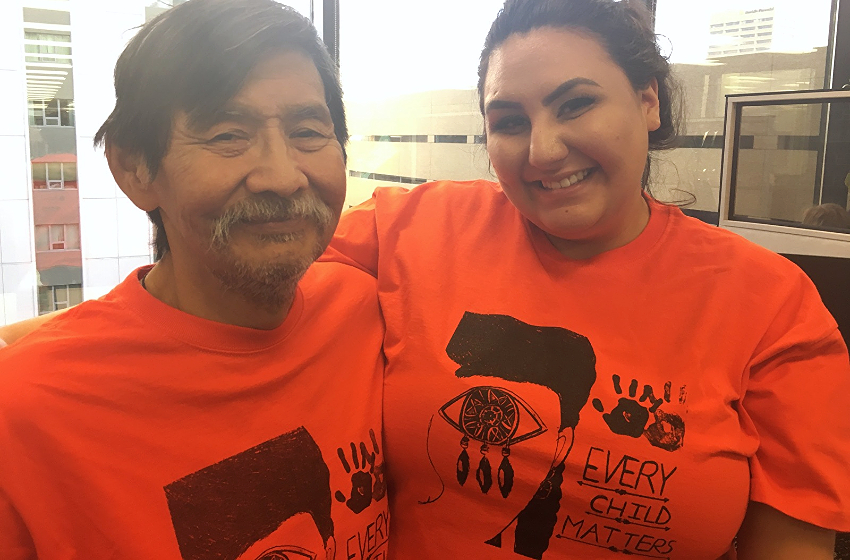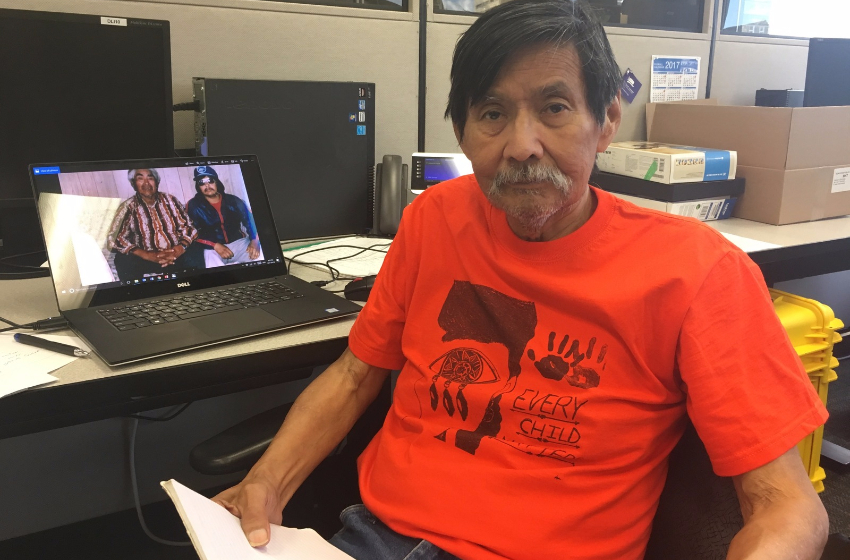Orange Shirt Day is a time to listen with open ears, minds and hearts to the stories of residential school survivors and their families. It is also a time to honour and remember those residential school students who never made it home.
An annual day set aside to raise awareness about residential schools and support reconciliation, Orange Shirt Day, opens a new window grew out of Phyllis Webstad’s story, opens a new window of having her new orange shirt taken away on her first day at the St. Joseph Mission residential school.
Falling on September 30, the day is an opportunity to focus on anti-racism and anti-bullying policies for the new school year and reinforce the message that every child matters.
The Impact of Residential Schools
The Residential School system was introduced and imposed for two reasons: to isolate and remove Indigenous children from the influences of their homes and to aggressively assimilate them into the dominant culture.
The living conditions of these schools have been well-documented in survivor testimonies as unbearable. Horrific stories of abuse, neglect, malnourishment and experimentation can all be linked to these institutions. Ultimately, the Truth and Reconciliation Commission, opens a new window has identified the residential school system as an act of cultural genocide.
From the system’s beginnings until the final school closed in 1996, opens a new window, it is estimated that more than 150,000 First Nation, Inuit and Metis students attended the schools. Thousands never returned home.
The impacts of the residential school system and over a century of loss has been devastating to our communities. The extreme mental, physical, sexual and spiritual abuse that occurred has infiltrated our families and communities and continues to impact younger generations.
The healing journey of our family members and friends has been long and difficult, but many of us are continuing to work towards our own personal reconciliation. With the help of our Elders, Resolution Health Support, opens a new window workers, Indigenous healing programs, languages and culture, we are beginning to move forward in a positive way.
Since the Truth and Reconciliation Commission of Canada hearings, more survivor testimonies and stories have emerged about our history. Storytelling is a huge part of Indigenous culture and is our most helpful tool in the reconciliation process.
The Edmonton Public Library’s Voices of Amiskwaciy, opens a new window website was created to support Indigenous people, including survivors, in sharing our stories, from our perspective, in our voice, in our media of choice.
Sharing as Medicine: Harold's Story
I would like to take this time to acknowledge and honour one of our storytellers.
Harold Cook is a Dene man living in Edmonton who is a survivor of Grollier Hall, a residential school which was located in Inuvik, NWT. Harold’s court case has inspired many other victims of abuse to come forward and share their story. Harold has worked tirelessly on his healing journey and has supported other residential school survivors as a Victim’s Advocate.
Harold has truly impacted the Voices of Amiskwaciy team and we are so grateful for his generosity and openness in sharing his story with us and other Canadians. His commitment to helping survivors and victims of abuse does not go unnoticed.
Listen to Harold’s courageous and honest telling of his journey in the video below.
Hear more stories from Indigenous community members and share your story with Voices of Amiskwaciy, opens a new window.




Add a comment to: Orange Shirt Day Raises Awareness About Residential Schools